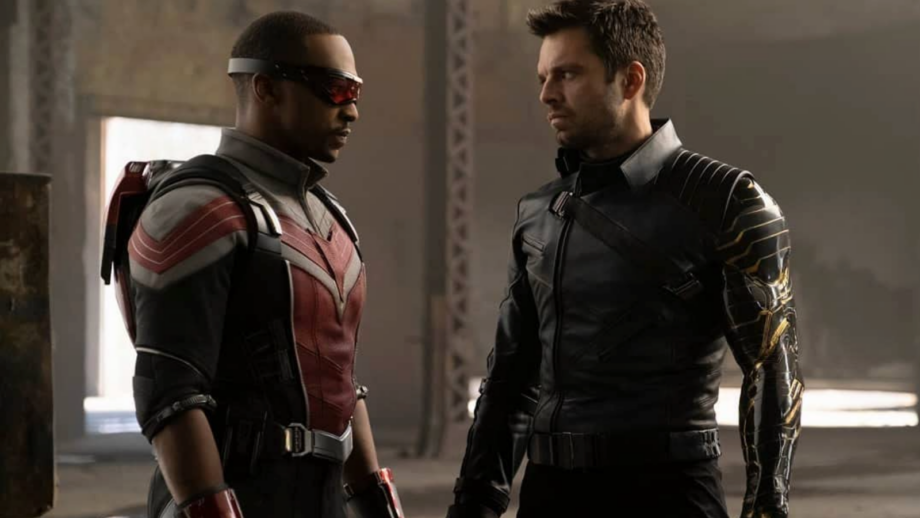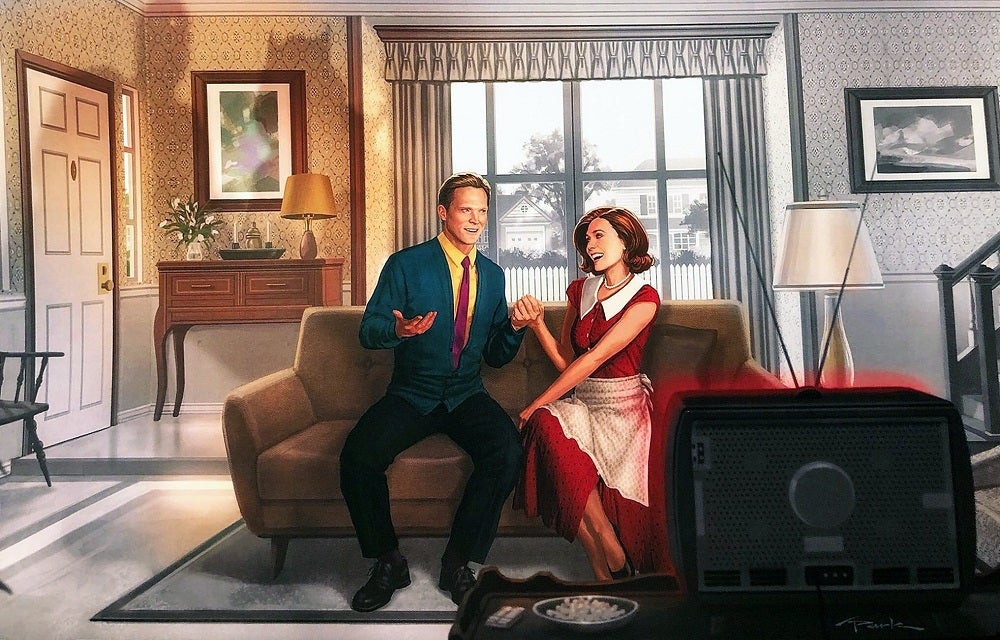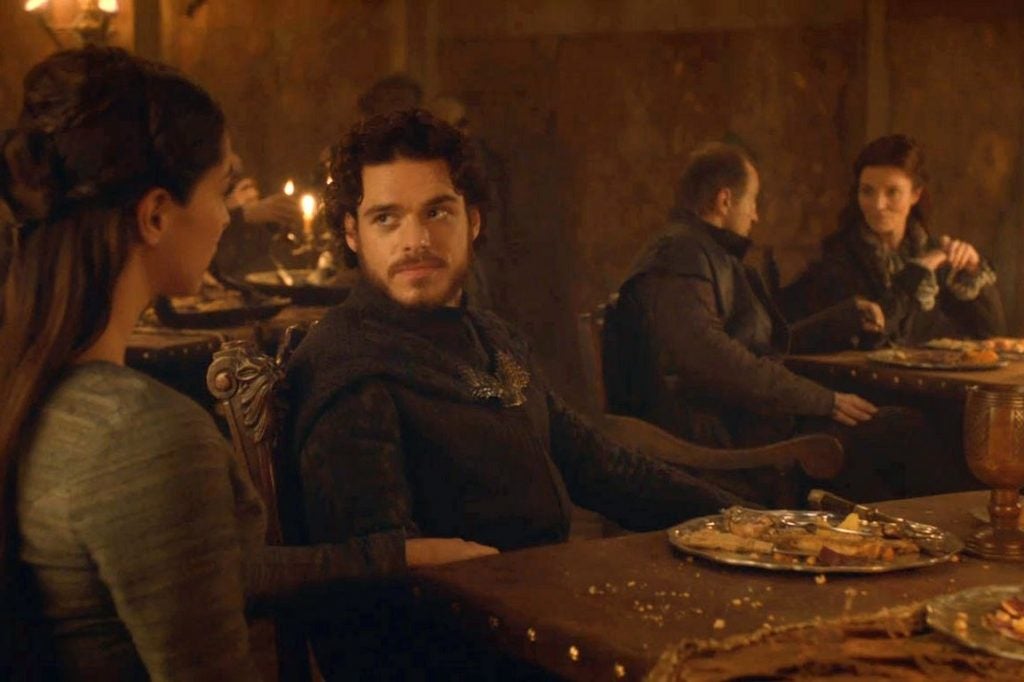Apple TV Plus and Disney Plus are saving good TV from Netflix binges

Disney Plus and Apple TV Plus are presenting television the way it should be. Chris Smith explains why he’s grateful for the weekly episode drops that eschew the Netflix ‘binge’ model…
Tell me, in what context beyond video streaming does the word ‘binge’ have positive connotations? The word itself means excessive indulgence. It suggests you’re doing more than is healthy or necessary in a short space of time. Yet it’s how many of us describe the way we consume new series on streaming services, often as a brag. We binge them. And it’s to the detriment of the content and the viewing experience.
Disney Plus and Apple TV Plus opting for weekly release schedules on shows like WandaVision and Ted Lasso has helped me to rediscover the beauty of the legacy model within the convenience of the streaming age. I don’t want enough food for eight meals on a single plate. Good television, I mean the really good stuff, should be savoured, not devoured.
When there’s a seven-day gap between the episodes, the joy of the cliff-hanger returns. There’s the few days of discussing the permutations with fellow fans, enjoying the crazy fan theories, finding the Easter eggs, and the rest of the week looking forward to that next episode. Just like many of us are doing with Line of Duty on the BBC right now. Just like we did with The Mandalorian, Game of Thrones, Breaking Bad and other huge shows that have become cultural events in recent times.
Netflix would argue its model is the ultimate exercise in viewer freedom, liberated from the traditional providers telling you when and where you can watch. If anything, I’d say the Netflix model does as much to impede that choice.
Related: Find 4K HDR footage on Netflix
With Netflix’s biggest hits, like two of my personal favourites Stranger Things and Cobra Kai, you’ve got little choice but to go along with the crowd and binge it. There’s almost an obligation to find the time to watch, unless you want it spoiled for you in person or online.
If you want to discuss it with your friends, it’s important you get it watched at the earliest opportunity. It also creates this strange netherworld where no-one knows where everyone’s up to. You’re constantly walking the spoiler tightrope that can ruin the show for yourself or others. I don’t know which is the worst feeling, but I’ve experienced both.

Look, you can still watch one a week if you like, and have the discipline, but you’re mostly excluding yourself from the discourse if you do. For me, the weekly model removes the anxiety, the fear of missing out. All you need to do is keep up with one episode at a time, or avoid the web until you’ve seen it.
Stranger Things is rightly regarded as one of the best shows of this era. However, its legend would be far greater if it had been drip-fed to us on a weekly basis and we’d had a chance to enjoy it around the water cooler and look forward to the respective fates of Hopper, Eleven, Dustin, Steve and the rest of our favourites playing out. Like we did with Game of Thrones.
I’m hugely in favour of consumer choice – the departure from TV by appointment is a welcome one – but you can have too much of a good thing and I’ll go to my grave arguing the weekly episodic model is the best way to enjoy television.
Beige binge
Good television needs time to breathe, for the emotional impact of the story to take hold. Great lines and segments of dialogue need time to stand out in the wider series. The ascent or demise of major characters needs time to be appreciated. That’s how shows become memorable. And what good’s a cliff-hanger when the next episode breathlessly and automatically begins mid-way through the end credits, if you don’t manually intervene? It renders the convention useless as a storytelling method used to create intense drama.
It’s not representative of the culture we’re living in right now, but give me the delayed gratification of a week pondering the ‘what ifs?’ over learning the truth within seconds of the ‘shocking’ climax.
Related: Apple TV 4K vs Chromecast with Google TV
Imagine just being able to hit ‘Next Episode’ after the Red Wedding episode of Game of Thrones? Would that episode really take its place in the pop culture Hall of Fame without that keeping the viewing public shellshocked and agape for a week back in June of 2013?

In this era, what was originally something designed for consumption over a couple of months becomes a sprawling 8-hour movie. Human beings just don’t have that attention span. You end up half-watching.
Netflix now writes its television shows in a manner that sees everything just blend in together, and it’s to the detriment of the experience. It all becomes kinda beige. A beige binge, if you will. As a result we’re unlikely to get any Red Wedding moments. They just won’t have the same impact and content creators are less likely to include them anyway, because they don’t fit the model.
Cultural phenomenon
Since the arrival of VHS (and through DVD, Blu-ray, DVR and digital downloads) we’ve had the ability to blitz through marathon viewing sessions at our leisure. When you’re watching existing shows, it can be comforting to plan a day in front of the couch catching-up in time for the next series. The model has a place. I rewatch The Sopranos in this way once a year. It’s comfort food.
Breaking Bad, in part went from under the radar hit to cultural phenomenon thanks to the ability for newcomers who’d arrived through word of mouth, to catch up on Netflix before that mind-blowing final series aired. In the UK, Netflix had the rights but, due to US TV contacts, they had to air the episodes weekly, and the experience was far greater for it.
The binging phenomenon truly became part of the lexicon through Netflix’s decision to make every episode of its first-run original shows available for users to consume at their leisure. Others followed suit and it has become the default model in the streaming era. Last year, a new Australian streaming service cut straight to the chase. It’s simply called Binge. Eugh, please.
However, there is a new hope. Such is the power of Disney and Apple, a return to this more fulfilling episodic experience is not only possible, but could become the norm rather than the exception. We’re once again looking forward to new episodes of shows like The Falcon and The Winter Soldier on Disney Plus and For All Mankind (which I’ve adored) on Apple TV Plus. That sense of anticipation is one of the joys of great television. I’m grateful Apple, Disney and others are ensuring it lives on. And don’t forget there’s more to come… In the words of the late, great Carrie Fisher: “Help me Obi Wan Kenobi, you’re my only hope.”


